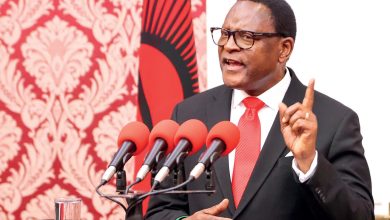Of trials, errors, dreams
Folks, June is a month etched in our national memory not for festivities, but for the courage Malawians took to say ‘enough is enough’ to the one-party rule. That chilly Monday in 1993, millions of eligible voters queued in the biting cold not for hand-outs, but to vote in a referendum that changed the course of our politics.
The majority of the electorate voted in favour of modern multiparty democracy. It was a powerful moment. A people long silenced finally found their voice. By May 1994, Bakili Muluzi and the United Democratic Front (UDF) rode that wave of hope into power. The air was thick with dreams for freedom, accountability and dignity.
But now, 32 years on, we must ask the uncomfortable question: What have we done with that hard-earned freedom? Beyond the slogans and speeches, who among the ordinary Malawians can truly say their aspirations from that referendum have been fulfilled?
Let’s be honest. Since 1994, we have been ruled largely by a crop of leaders who, once elevated to high office, promptly betrayed the very values they once championed. Instead of strengthening institutions, they weakened them. Instead of fighting corruption, they weaponised it. Instead of building a republic of equal citizens, they presided over governments of crooked friends and cronies.
Muluzi, the same gentleman who led the march against Kamuzu Banda’s overstayed first MCP rule, later tried to extend his term, not once, not twice, but several times. Who can forget that infamous 2002 rally at Kabula when he cheekily asked for “just another 23 years”? Joke or not, it laid bare the troubling political amnesia that has plagued our leaders: they forget where we are coming from.
To his credit, Muluzi’s administration helped establish democratic institutions — the Malawi Electoral Commission, the Anti-Corruption Bureau (ACB) and the Malawi Human Rights Commission, among others. But his legacy remains tainted by the endemic corruption and economic free-fall that characterised his second term under the UDF regime.
Then came Bingu wa Mutharika (may his soul rest in peace), who in his first term seemed to steer the country out of UDF’s economic mess, only to later tumble into the same pit of arrogance and authoritarianism he once denounced. Under his watch, civil liberties shrank, dissent was hounded and by the time he died in office in April 2012, our democracy was gasping for fresh air.
His brother, Peter, took over in 2014 after Joyce Banda’s brief interlude. His presidency promised much, but delivered little more than meaningless rhetoric. Peter perfected the art of governing through patronage and intimidation, reducing democratic governance to a case of rituals without substance.
And now we have the second MCP, which came to power in 2020 amid massive public goodwill. But that promise, too, is fast unravelling, if you asked me. The fight against corruption is stalled. The ACB has been under siege. Nepotism thrives. Executive arrogance came back in fashion. Development projects are sporadic. And most political appointments have returned to being rewards for loyalty, not merit.
Yes, we have periodic elections, and yes, we have a freer press. But those are the bare minimums. Democracy should mean more than just voting. It should mean accountability, transparency, justice and opportunity for citizens. Unfortunately, we are a country stuck in permanent campaign mode, where leaders promise heaven every five years, only to deliver hell in instalments for five years.
So, 32 years later, our democracy is not one to celebrate as an achievement. It’s one to interrogate. A painful reminder that freedom without responsibility and democracy without justice are empty vessels.




